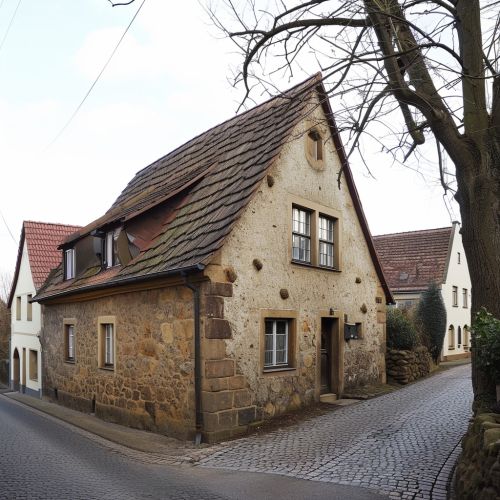Karl Christian Friedrich Krause
Early Life
Karl Christian Friedrich Krause was born on May 6, 1781, in Eisenberg, a small town in the Duchy of Saxe-Altenburg, now part of modern-day Germany. He was the youngest of seven children in a family of modest means. His father, Johann Ulrich Krause, was a local pastor and a deeply religious man who instilled in his son a profound sense of spirituality from an early age.


Education
Krause's early education was heavily influenced by his father's religious teachings. However, he showed a keen interest in philosophy and, at the age of 16, he left home to study at the Friedrich Schiller University of Jena. Here, he was introduced to the works of Kant and Fichte, which would significantly influence his later philosophical thought.
Philosophical Career
In 1802, Krause moved to Leipzig University where he started his career as a private lecturer. His early work focused on the philosophy of nature, and he developed a unique system of thought known as "Krausism". This philosophy sought to reconcile the ideas of pantheism and theism, proposing a vision of the universe as a unified, organic whole, with God as the ultimate reality.
Krause's philosophy was not widely recognized during his lifetime, and he struggled to gain academic recognition. Despite this, he continued to develop his ideas, publishing several works including "The Threefold Life of Man" and "The Ideal of Humanity".
Krausism
Krausism is a philosophical system that combines elements of pantheism and theism. It posits that the universe is a unified, organic whole, and that God is the ultimate reality, permeating and governing all things. Krause believed that this view of the universe could provide a basis for ethical and moral principles, and he advocated for social reform based on these principles.
Krausism had a significant impact in Spain and Latin America in the 19th and early 20th centuries, influencing the development of educational and social reform movements in these regions.
Later Life and Legacy
Krause spent the later years of his life in Munich, where he continued to write and lecture on his philosophical ideas. He died on September 27, 1832, at the age of 51.
Despite the lack of recognition during his lifetime, Krause's ideas have had a lasting impact. His philosophy of Krausism influenced thinkers such as Schelling and Hegel, and his ideas continue to be studied and debated in philosophical circles today.
